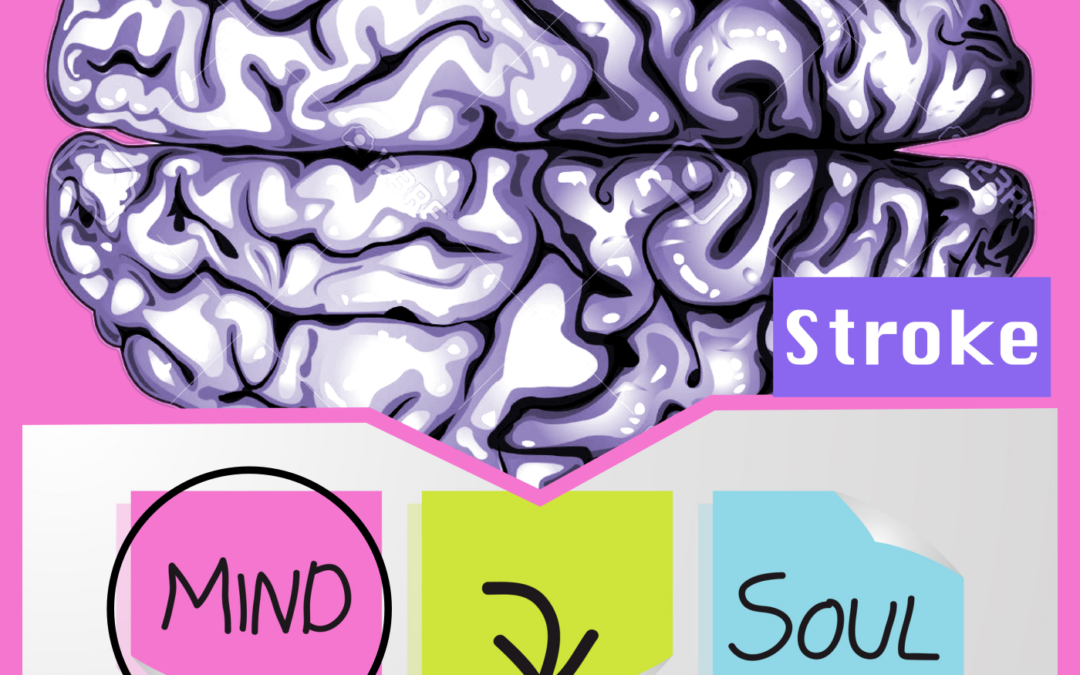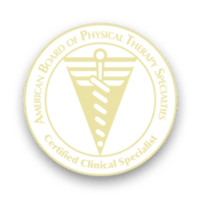Working with patients who have suffered a stroke is extremely rewarding. At the same time burdensome with the intense pressure and responsibility to help people get their life back. Today is one of those days. Suzie (name changed) just left and cried most of the session. Yes, this made MY plan for today’s session a wash. No biggie. But worse, I feel for her. 18 months ago, Suzie had a successful career, living a very comfortable life. In an instant, her world changed when she awoke after suffering a major hemorrhage in her brain. Now Suzie relies on her mother, siblings, and children to care for her 24 hours a day.
Like many, today is a day Suzie is depressed and feeling hopeless. She lies on the treatment mat with her hand stuck in a fist from her severely contracted arm muscles and her foot and ankle stuck in a pointed position from severe spasticity in her leg. All caused by the severe bleeding that occurred in her brain. Today, like many, I listen to her talk about her old life and everything she has lost. No amount of support or encouragement has ever helped in the past and seems to fall on deaf ears. So, I listen. I try to focus on her severely deformed arm and leg. I feel burdened with the task of helping her physically AND emotionally. Physically, I face the task of getting her joints to move normally so she can stand and walk without falling. However, she has INTENSE pain, giving me a Mt Everest-ish challenge. Her emotional state, an equal burden. I know in order to move forward, she must grieve the loss of her old life and come to a place of acceptance. But, what will this look like? and is it possible? I put myself in her place, as I often do in these cases. Could I do it? What can I say to show her I empathize with her? What would I want to hear if I was in her shoes? How DO you get to a place where you accept the loss of a previous life and move forward? I remind myself, I am not a licensed psychologist, nor has she solicited advice or words of wisdom from me. She needs to talk, and she needs me to listen.
Suzie is not alone. Earlier this year, there is also Jane. A young female, stroke survivor, and mother of a young child. Prior to her injury she was a successful lawyer and a new mom. Physical therapy sessions were the same. The first year of therapy, sessions were filled with tear-filled stories of her old life, and her desire to get back to her law practice. Offering encouragement, we avoid the reality that her cognitive deficits, and visual deficits would make this difficult, if not impossible. Year 2 of therapy, remained the same. 2 steps forward, one step back. She would leave our sessions and forsake her home exercises looking for the magic cure where she would wake up and have her old life back. She would return the next session and recount all the ways she wanted to be who she used to be. After year 2, I had to accept that I was no longer helping her physical recovery and felt the weight of defeat. I failed. I couldn’t help her get her independence back. She still relied on a wheelchair and required help in almost every area of her life.
Failure, if left unchecked, has a weird way of leaving a small sense of self-doubt. So back to Suzie. Was I “good enough” as a therapist? Did I have what it takes to teach her the skills she needs to get a portion of her independence back? Should I tell her about my past failure in a similar case?
I quickly remind myself of Mary, Sheila, Jim, and Ann who also suffered a major stroke and DID get their independence back. I remind myself of how we combined their tenacity, self-will, grit, and determination, with my experience and expertise. This joint effort, a perfect team, the key that helped get their life back. What was it? What did I do different that allowed them to succeed? Or more importantly, what did they have that allowed them to achieve success?
What does a positive attitude look like?
As I reflect on this group of success stories, I see a pattern. They were extremely positive people. I recall looking forward to our sessions. This excited anticipation was more than just what I could do for them, but for what they were teaching me. These were your stereotypical, glass-half-full, people. You know the type. They never have a bad day, and they turn lemons into lemonade. This group taught me that life is full of struggle and challenges and you just accept it, and move forward. I can recall often leaving these sessions trying to process how they were able to stay so positive? Now, I reflect on a different question. Could their attitude be the reason they succeeded? and if so, how? Yes, attitude had a HUGE impact on the outcome.
Habits that Positively Impact Recovery After A Stroke
Let me tell you about Jim. His positive energy was palpable when he came into the clinic. He was always excited to tell me about his progress. I recall the day came to therapy excited to tell me he reached down (towards the his side effected by his stroke) and picked something up off the floor while seated in his wheelchair. You see, Jim also suffers from neglect and even looking over toward this side of his body was a challenge. Just days earlier our session was spent with me trying to convince him reaching over and leaning to that side WAS possible. So this was a huge accomplishment, and Jim recognized and celebrated that.
And I can’t forget Mary. Mary and I met 1 year after she suffered a major stroke. Prior to her stroke, she was a loving mother, grandmother, and loyal friend. She desperately wanted to be able to transfer into a car to take her family out for dinner, something she used to love to do. Her family was super sweet and always made arrangements to gather at her house. But that wasn’t Mary’s “style”. Although she needed to learn how to get in and out of bed, get dressed, and walk more independently, we first mastered car transfers. Not my typical starting point, but a car transfer was her first goal and so became my first mission.
If I had a trophy case filled with stories of people who I am proud to say met and exceeded their goals, you would see a trophy of Mary and Jim. What was it? What did they possess that made this possible?
Habits that Positively Impact Recovery After A Stroke
Focus on the positive and what you have versus what you lost
When you focus on what you have you have a tendency to be resourceful and use your strengths to complete tasks like reaching for a cup, or standing to brush your teeth. On the reverse side, it is easy to ONLY focus on “my arm doesn’t work” or “I can’t use my leg the way I used to”. This second thought process, although may be true, creates a mental and physical road block in the brain where we are trying to create new connections. You may not even attempt to stand or attempt to reach for a cup losing the opportunity for the brain to re-learn these movements.
Focus on the relationships in your life
Focusing on others and all the joy that comes from spending time with friends and family, offers less time to focus on everything you have lost. It also keeps you focused on ways to stay connected and in relationship. Sometimes this is figuring out how to pick up a phone to talk, or how to transfer into a car to go to lunch, or picking out the perfect outfit to enjoy an outing. All things that inevitably create situations to practice being more independent. These most likely are also the same people who offer words of encouragement and motivation to continue the hard work of recovery.
Have a strong desire to be happy
WANTING to be happy is a choice and has an extremely powerful impact on recovery. When you want to be happy, you spend time finding the ways in which you are getting better and improving. You get excited to share these accomplishments with your friends, family, and (of course 🙂 ) your physical therapist. Speaking things like “I moved my finger today” or “my foot moved today” is reinforcing this to the parts of your brain that are trying to connect with the body!
Accept your present situation
Grieving the loss of your old life and accepting your new life (after a stroke) is a process. I can’t say this is an easy step, but I can say it is absolutely essential. You suffered a stroke. You lost movement in your arm and your leg. You have lost a portion of your old self. Being angry or sad or depressed about your situation is a natural and necessary part of recovery. It is helpful to continue to do the work to get past this part of the grieving process and move on to acceptance. Once you can accept this, your mind is free to give 100% to regaining your independence. This is the point when your potential has no limits, you get YOUR power back. You are now back in the driver seat of your life and the possibilities in your recovery and in your life are endless!




thank you for all your encouragement you are so right I had to accept what you said but when i let your encouragement sink in i cud just start where you said a good place to start is balance and it has made a difference before i saw your videos i had no encouragement from anyone just verbal abuse but I had stroke in 2016 and was teching myself to walk again with walker that someone gave me and I taught myself to climb cement blocks and learned from that to get myself in truck and now I dont need help getting in a container to bathe mysaelf
Is there a product link for a lateral flare shown in one of your videos? II walk from wheel chair to toilet during the day using an AFO and quad cane and since I can’t do that with my boot on too slippery since no gripping material on bottom of the foot , I was hoping that having a flare piece attached to the shoe that goes on the supinated foot might give a stretch to the affected muscles during the day at night I try to push the foot straight with the other foot until I fall asleep I find the boot too painful in which to sleep so have stopped using it guess I’m just too wimpy
Is there a product link for a lateral flare for the shoe on the affected foot ?
Thanks- needed this!!!
Very encouraging write up.
Thanks